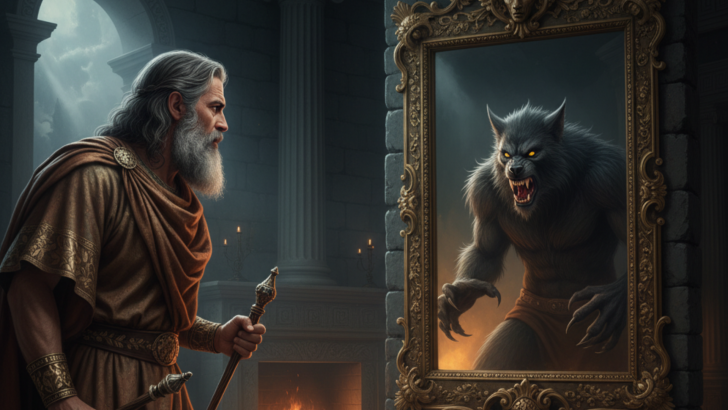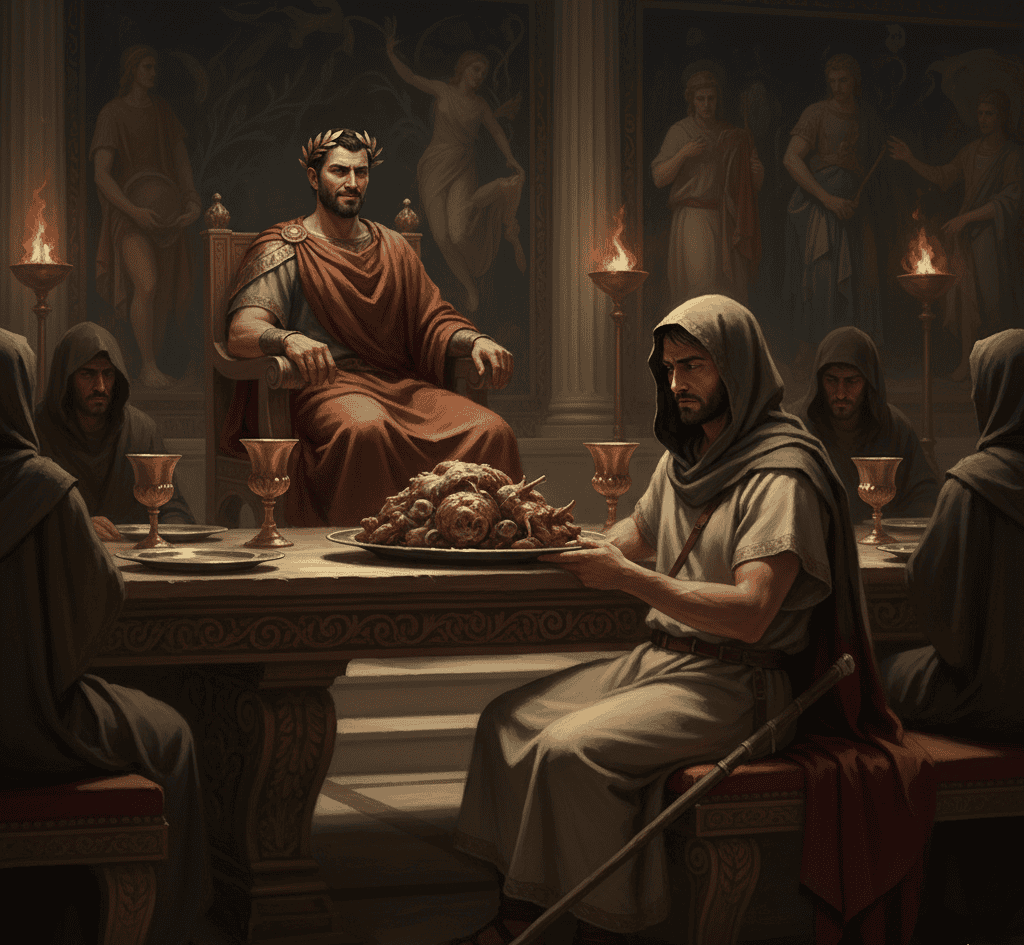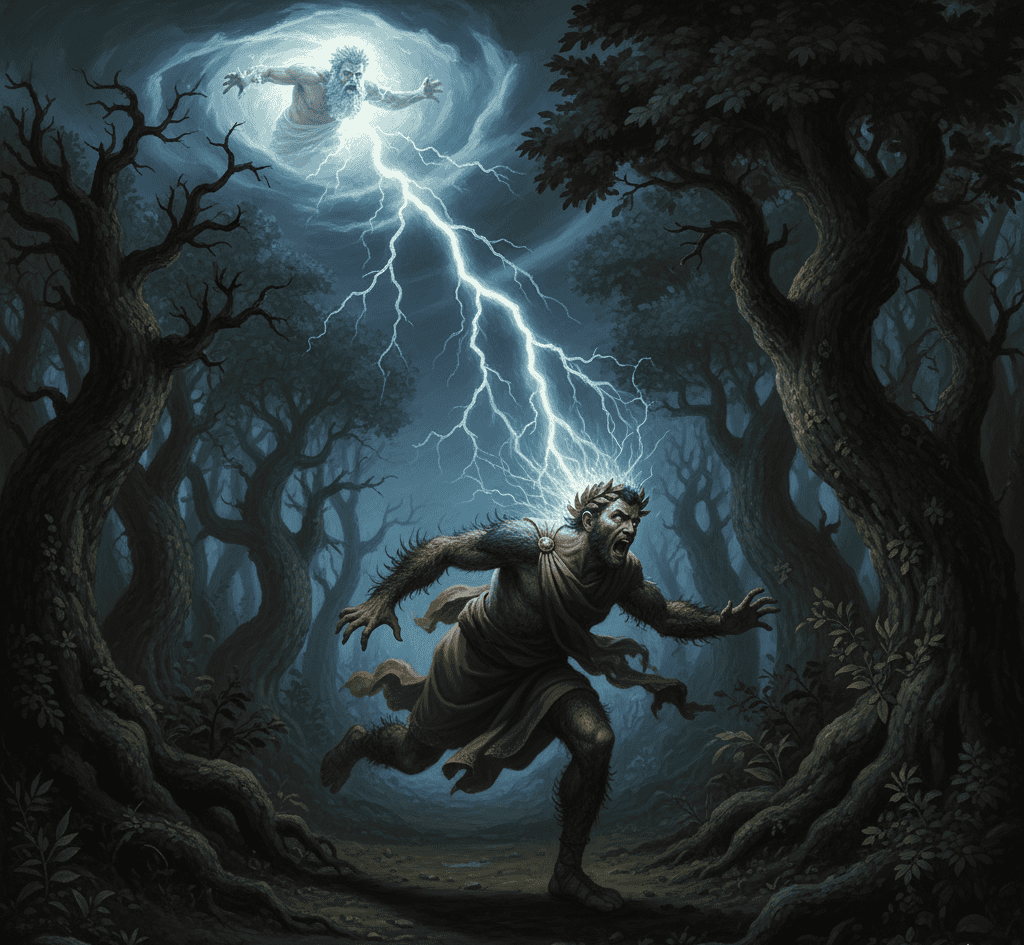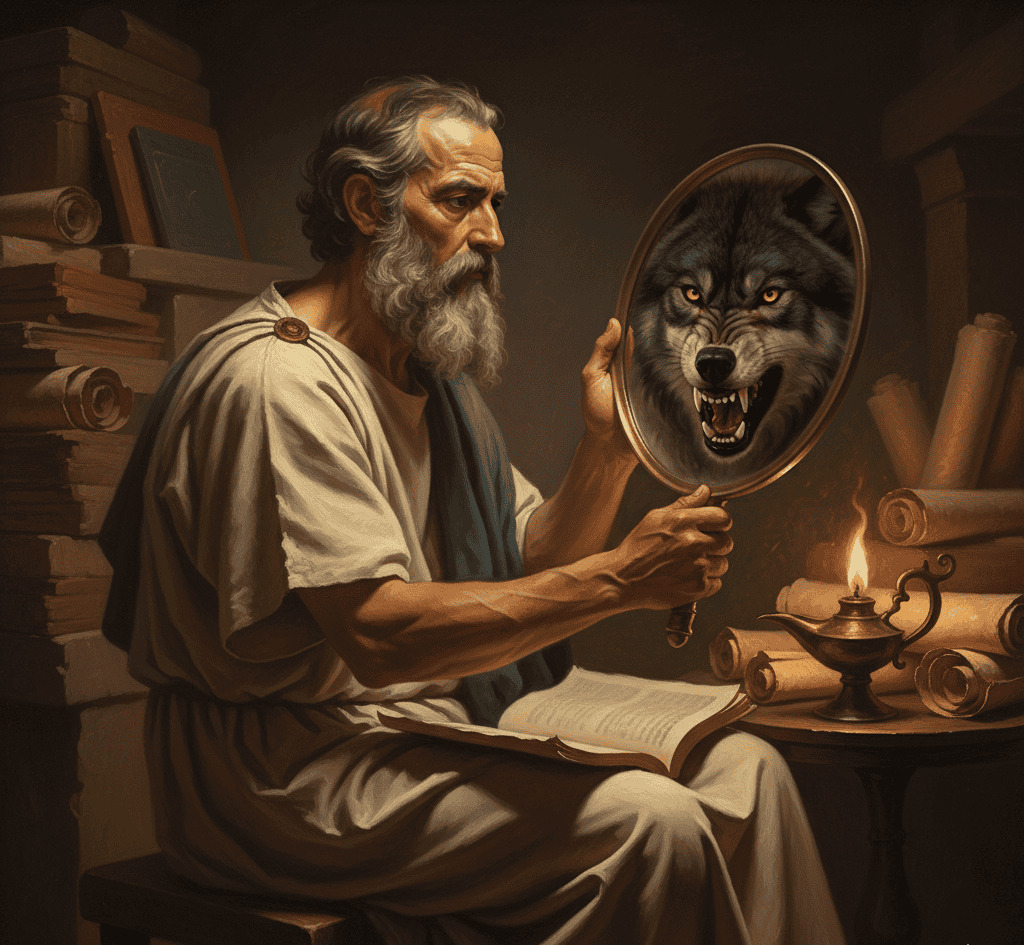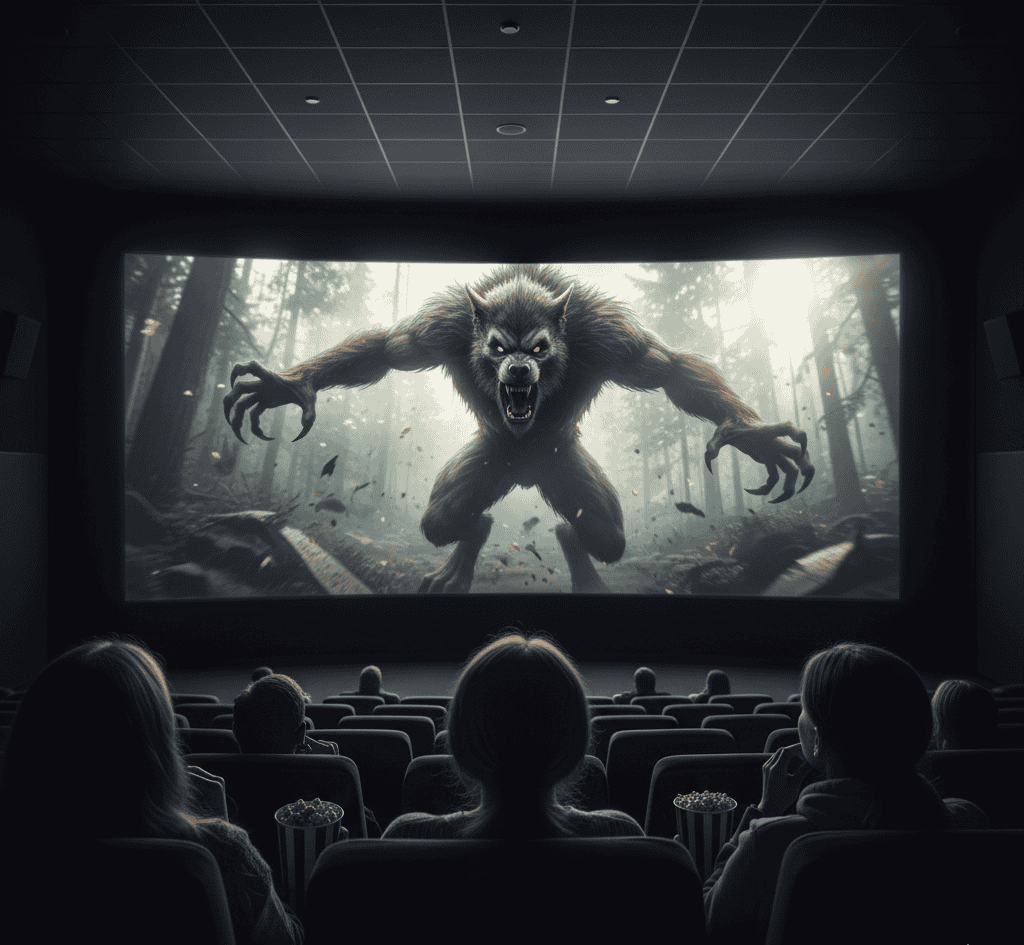Long before stories of full moons and silver bullets, the Greeks told a far older tale of the first man cursed to become a wolf.
His name was King Lycaon, and his story marks one of the earliest roots of the werewolf legend. In a world where gods watched every mortal act, Lycaon’s sin was not only cruelty but defiance of the divine.
His punishment became a myth that survived for millennia, echoing through European folklore and into the monsters of modern imagination.
Yet behind the horror lies a question the Greeks often asked – what happens when humanity turns away from its own nature?
A King Without Reverence
King Lycaon ruled over Arcadia, a wild, mountainous region of Greece that was said to be sacred to Zeus.
Ancient writers described him as a proud and powerful leader, but also deeply corrupt.
In some versions of the myth, Lycaon was the father of many sons, all of whom shared his arrogance.
Their palace was rich and their people loyal, but their hearts were cold to the gods.
When Zeus descended to earth disguised as a traveler to test the virtue of mankind, Lycaon saw an opportunity – not for hospitality, but for mockery.
Instead of offering food fit for a god, he served the ultimate insult – human flesh, in some versions, the body of a child, even his own son.
This act of sacrilege was beyond anything Zeus had seen. In Greek belief, hospitality was sacred, and the offering of a meal symbolized respect between mortal and god.
Lycaon’s feast turned this sacred bond into a vile act. It was not only a crime against Zeus, but against the moral fabric that held the world together.
The Wrath of Zeus and the First Transformation
Zeus’s response was swift and terrible. Enraged by the king’s cruelty, he revealed his divine form, shaking the heavens with thunder.
According to the poet Ovid, the moment Zeus’s anger fell upon Lycaon, the king fled in terror to the wilderness. There, his body began to twist and change.
His hands curled into claws, his face stretched into a snout, and his heart – already savage – became fully that of a beast. In an instant, Lycaon was no longer a man but a wolf.
This transformation was more than punishment; it was revelation. The Greeks saw it as a reflection of inner truth. Lycaon’s cruelty had made him a beast long before Zeus’s lightning struck.
The god had merely revealed what was already within him. In this way, the myth of Lycaon carried a moral warning:
When humans abandon reverence and compassion, they lose the very qualities that make them human.
The line between man and beast, to the Greeks, was not physical – it was spiritual.
From that day on, Arcadia was said to be haunted by wolves that bore the spirit of the cursed king.
Some myths claim that his descendants, the Lycaeans, carried traces of his curse, performing rituals during which men could briefly turn into wolves and back again if they refrained from tasting human flesh.
These tales, told around fires and passed through generations, may be among the earliest echoes of the werewolf legend as we know it today.
The Meaning Beneath the Myth
Greek myths were never just stories of monsters – they were mirrors held up to human nature.
The tale of Lycaon was not about a man cursed by magic, but a warning against moral decay and the loss of piety.
In Greek thought, transformation often revealed truth rather than concealing it.
When Narcissus turned into a flower or Arachne into a spider, their forms reflected the essence of who they had been all along.
Lycaon’s change into a wolf followed the same logic. His heart had grown wild with arrogance, so nature simply followed his spirit.
There is also a deeper theme of divine order in the story. The Greeks believed that mortals who defied sacred laws created imbalance, and the gods restored harmony through punishment.
By serving human flesh, Lycaon had violated the most sacred duty of all – respecting the boundary between god and man, civilization and savagery.
His transformation restored that boundary in the most brutal way possible. To the ancient audience, this was not horror for its own sake.
It was moral storytelling. The beast within was the danger they feared most, not the wolves in the dark forests of Arcadia.
The Shadow That Lives On
Over time, Lycaon’s name became the root of many later words and legends. The term lycanthropy, meaning “wolf-man,” comes directly from him.
Centuries after the fall of Greece, Roman poets, medieval scholars, and even Christian theologians repeated the story, reshaping it into new forms.
By the Middle Ages, tales of cursed men turning into wolves spread across Europe, but their essence remained the same – the idea that savagery lurks inside humanity, waiting for the right moment to emerge.
Today, werewolves appear in films, novels, and folklore around the world. They are creatures of both fear and fascination, symbols of the conflict between control and instinct.
Yet if we trace the myth back to its Greek roots, we find a simpler message: the beast is not a stranger – it is the reflection of our own choices.
King Lycaon’s curse reminds us that cruelty, arrogance, and moral blindness can strip away what makes us human.
The Greeks understood that the greatest transformations do not come from magic, but from the truth of what we become.
The legend of King Lycaon endures not because it tells of a monster, but because it tells of a man.
His story bridges the distance between myth and morality, showing how easily the two intertwine.
The Greeks did not fear the wolf in the woods as much as the wolf that lived in the human heart.
And perhaps, that fear still follows us – whenever we tell stories of the moon, the hunt, and the man who forgot he was human.

Ho sempre sentito una forte connessione con il Divino fin dalla mia nascita. Come autrice e mentore, la mia missione è aiutare gli altri a trovare l'amore, la felicità e la forza interiore nei momenti più bui.

